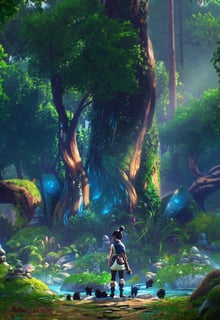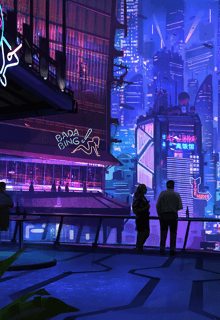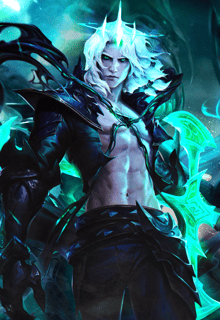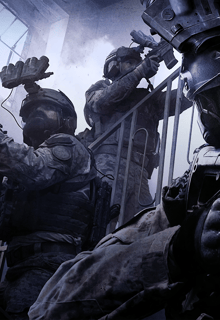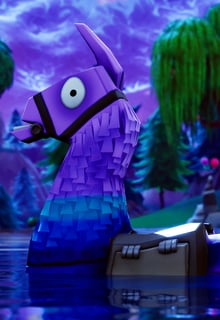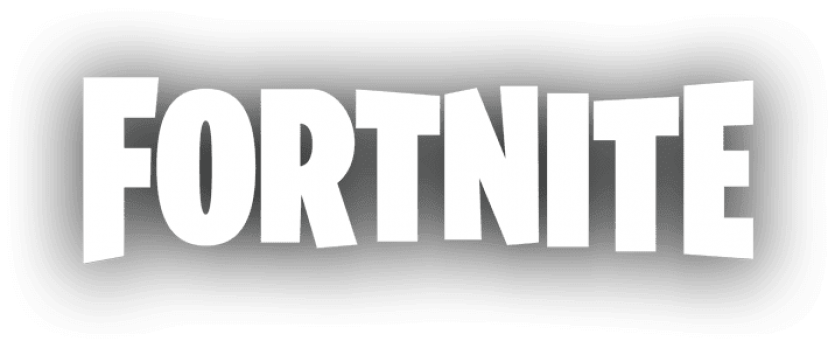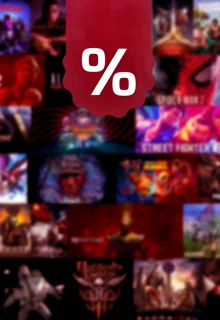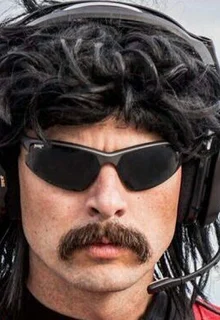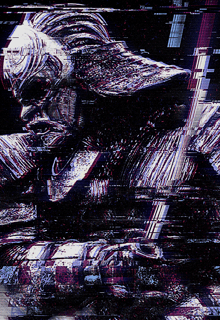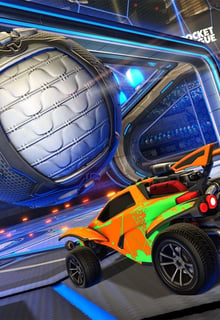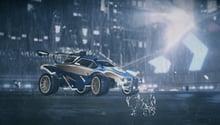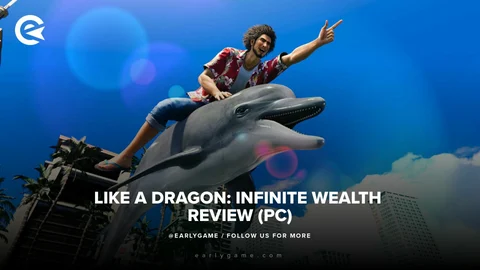Read in our Like a Dragon: Infinite Wealth review how the game transported me to a place we never want to leave and how the transition from the Yakuza series continues.
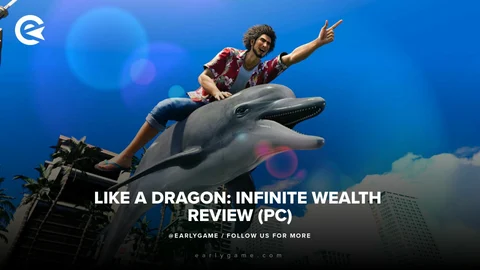
It’s January, I’m cold all day and I hate it. I’m sure most people would rather be on Hawaii, enjoying the sandy beaches, clear blue skies and warm temperatures around the clock. Like a Dragon: Infinite Wealth fulfills that fantasy, allowing you to spend the cold months in sunny and beautiful Honolulu with everyone’s favorite heroes, Ichiban Kasuga and Kiryu Kazuma.
Of course, the two ex-Yakuza aren’t in Honolulu just to have fun. Ichiban goes to the island in search of his biological mother Akane-San, who he has never met and who has gone to Hawaii to hide from the Yakuza. Kiryu, recently diagnosed with cancer, is going on one last mission for the Daidoji faction… searching for the same woman.
The search for Akane-San slowly develops into something much bigger, mysterious and dangerous. What unfolds is an unforgettable adventure, a matter of life and death that will drive its protagonists to the edge of their powers and their lives.
And then you ride a dolphin to your island resort. And you beat up aggressive guys on the streets, dressed as a cowboy. And you sing a whole lot of karaoke. It’s Like a Dragon after all, and it’s once again an incredible experience.
Like a Dragon: Infinite Wealth Review | The Bottom Line
Like a Dragon Infinite Wealth is a brilliant game that I would recommend to anyone who is into action-adventures, RPGs, mature storytelling, hilariously silly nonsense and/or beautiful dense game worlds.
Pre-order the game now for PlayStation 5 , PlayStation 4 , or Xbox Series X/S
- The story surrounding Ichiban and Kiryu on the search for Akane-San is an excellent, constantly surprising nailbiter
- Mix between Japanese and English voice acting has unfortunately some jarring issues
- Kiryu’s bucket list storyline is beautiful and moving
- Honolulu is a wonderful playground that I loved to be in
- There is an incredible amount to do and almost all of it is fun and worth experiencing
- Combat is super fun and engaging throughout, translating the chaos of older Yakuza games wonderfully into a turn-based system
- Jobs are hilarious and skills are fun to use and visually impressive
- Class and build crafting lacks depth
- Side modes like Dendoko Island and Sujimon are very fun, but lack a certain cohesion
One-Way Ticket To Hawaii
Once Ichiban, the hero introduced in this game’s predecessor, Yakuza: Like A Dragon, gets a hint that his mother Akane-San is living in Hawaii, he quickly makes his way to the island. As one might expect, things are not as straightforward as he probably would have hoped for.
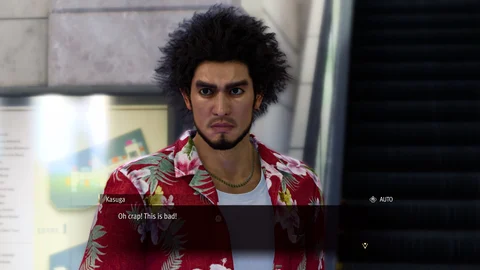
Quickly it becomes clear that Akane-San is missing. And it’s not just Ichiban and his party that are looking for her, as the entire Hawaiian underground seems to be involved in this case. In typical Yakuza/Like a Dragon fashion, the story is brilliantly told, but takes it’s time to get going and to slowly unpeel every layer of this large onion.
The developers at RGG Studio clearly know what they’re doing here again, as the story is once again an exhilarating nailbiter. The slow pace works beautifully for the type of storytelling these games are engaged with an Infinite Wealth is no exception in that regard.
The longer you go on, the more layers become apparent, the more twists will make you shout in front of your screen, the more dramatic and moving it gets. Yes you will need some patience, as cutscenes and dialogue sequences are very long and slowly paced. The reward is a kind of mature, satisfying storytelling that is still a rare sight in gaming.
There’s only one complaint really, and unfortunately it’s a pretty annoying one. Despite the game being largely set in the US, a lot of characters, even ones that are supposed to be American, are still voiced by Japanese actors. Almost every dialogue in the game is in Japanese, which is fine (and Hawaii’s strong connection to Japan paves over a lot of cracks here), but some of the English dialogue sound like the actors have never spoken the language before and are just reading lines of a piece of paper, which sounds painfully wrong.
If this would have only happened once or twice or only relegated to minor characters, it wouldn’t be much of an issue. But this unfortunately keeps happening, including with several really important characters. It feels like a huge oversight in a game that otherwise is world class in terms of voice acting and writing and it took me out of important moments more than once. I still loved experiencing the story, but this issue definitely soured the experience.
| Release Date: | January 26, 2024 |
| Price: | $69.99 |
| Platforms: | PC, PlayStation 5, PS4, Xbox One, Xbox Series X/S |
| Developer: | Ryu Ga Gotoku Studio (RGG) |
| Publisher: | SEGA |
| Genre: | Action-Adventure, RPG |
| Playtime: | 80-120 hours |
Once More With Feeling
On this long, breathtaking journey, you’re accompanied by companions old and new. I won’t go into too much detail for spoiler reasons, but just want to mention how fantastic the new characters are. They fit perfectly into Ichiban’s party of kooky outcasts and are a great addition to the team.
One of these companions stands taller than anyone else, and that’s of course Kazuma Kiryu. The protagonist of Yakuza 0-6 is back here, but unfortunately it’s his last hurrah. Kiryu has late-stage cancer, so his mission on Honolulu is supposed to be his last big one. At one point in the story, Kiryu goes back to Yokohama and this is where the game’s storytelling really opens up.

Whereas a lot of the game is about the last days of this titan amongst men, the Yokohama section of Infinite Wealth really focuses on that aspect. Kiryu creates a bucket list and wants to enjoy his last days. Part of that journey constitutes a lot of reminiscing over many moments from the previous games in this series. This also includes a ton of beloved characters from the older Yakuza/Like a Dragon titles.
This is really where the heart of the game was for me. Every moment with Kiryu, especially when he is confronted with past friends and regrets, felt precious, beautiful and poignant. It’s an extremely moving arch that constantly brought me close to tears. The way RGG treat the legend Kiryu in this game is really special and was wonderful to experience.
I’m An Island Boy & I Love It
RGG is not just great at storytelling, but also in creating dense, immersive worlds and Infinite Wealth is another homerun in this regard. Honolulu is an absolutely fantastic setting and one of my favorite game worlds ever. The city just has the best vibes, and being able to escape from the cold winter into this sunny paradise is frankly reason enough to play this game.

Honolulu is once again not the biggest city in any game, but it will probably be one of the densest. Every square meter of this map seems to have been purposefully and intelligently designed. All the diverse parts of the city are brimming with life, from the busy beach to the quieter park areas or the seedy underbellies. It’s a living, breathing city that I loved being in and that I can’t wait to get back to whenever I’m not playing the game.
Just like in every Yakuza/Like A Dragon game, and as the name of this one strongly implies, there’s a ton to do in Infinite Wealth. Both Honolulu and Yokohama are jam-packed with activities, items to find and collect, NPCs to interact with, annoying guys on the streets to fight and so on and so on. Every five meters there is something new to do, keeping you engaged and entertained wherever you go. Shout out to the great new addition of the Segway, which allows you to traverse the city in a much smoother and faster way than you would be able to on foot.
A Cowboy, A Dancer & A Surfer Walk Into A Bar
Combat in Infinite Wealth works similarly to its predecessor. Fights are carried out in a turn-based system, where you and your enemies can use basic attacks, powerful skills and items. What felt quite decent, but fairly static, in Yakuza: Like a Dragon has been smartly expanded and developed. The biggest change is that you can now move your character within a certain radius, which gives the combat much stronger dynamism and flow. It also makes positionality a factor, as back attacks and proximity bonuses make attacks much more powerful.
Thanks also to other changes, for example how knockbacks and dynamic actions are a bigger factor now, it feels like the chaotic energy of the brawls from old Yakuza games has been translated much more successfully into the new combat system. The fights feel crunchy and dynamic, a lot closer to how they used to be in the series despite playing out in a turn-based system instead of a real time action one.
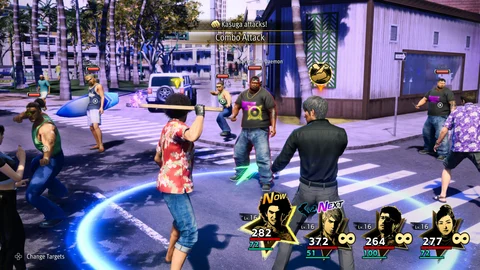
And this is just a ton of fun. I basically enjoyed every fight in the game. Whether my party was just smacking around some lowly fools on the street (thankfully you can get automatic wins against under-leveled enemies by just pressing one button) or facing a big boss battle. These take much more strategy, time and clever use of my party’s skills and are always a highlight when they pop up.
While the combat itself is super fun, it’s really the jobs that end up making this system as great as it is. There are well over 20 different classes you can choose from. Some are character-locked (Kiryu is obviously the only Dragon of Dojima, Ichiban is the only one who can be a Hero and so on), but every character still has a large variety of jobs to choose from.
Just like in the previous game, Ichiban’s wild and playful fantasy, plus his obsession with Dragon Quest, make everyone appear as monsters and heroes. Having everyone run around dressed in the most absurd costumes is super fun. My party currently consists of a cowboy, a hula dancer, a surfer and a samurai.
Using each job’s ridiculous and spectacular skills is constantly hilarious and a visual feast. From the Aquanaut class using a giant frozen fish as a bat to the Geodancer attacking enemies with powerful booty swings, the game’s world class creativity and wackiness really shines in this aspect.

Unfortunately, changing jobs is still a bit of a hassle as you start every class at job level 1. Ranking up jobs doesn’t take too long, especially in later parts of the game, and EXP boosters help mitigate this issue as well. But unless you want to walk into a main story fight under-leveled and with only a few skills at hand, you will have to go out of your way to level up classes. The optional Labyrinth dungeon, one of which is in each city, offers a decent venue for some grinding, but I personally didn’t really want to take these extra steps to level up jobs and it took me out of the game’s overall fantastic flow.
This also runs counter to the otherwise very fine balancing of the game. Without doing too many optional fights, I was always at a good level for the main quests in the game. Doing some grinding to level up jobs then actually ended up making my party OP for some sections of the game. I guess this is always a tricky balance to strike, and while the game definitely doesn’t fail in that regard, it’s also not best-in-class.
One thing I was sort of missing was deeper build crafting as well. Thanks to the different classes, you have many options in how you setup your party. But each class only offers a few weapons per strength level (indicated by stars from 1 to 6), and job-specific gear only gives EXP boosts.
This means that classes will stay similarly for as long as you use them, without too much changing. However, the new Skill Inheritance system is pretty neat, as it allows you to take skills from other jobs into your current class, allowing for more variety and strategic thinking.
As mentioned before, there is just so much stuff going on in the game. Several mini-games, dozens of unique side stories, tons of challenges, a bunch of different leveling systems (overall level, jobs, bonds, Ichiban’s & Kiryu’s personalities etc.), crafting, upgrades and also fully fleshed-out systems that run parallel to everything else in the game. The two big ones in this game are Sujimon and Dondoko Island.
Legally Distinct Animal Crossing

The first is just Pokémon with weird dudes instead of Pocket Monsters. You collect versions of all the strange people you fight in the game, can train them to make them stronger and then use them in 3-v-3 fights. The bit of it all is undeniably amazing. Every silly Pokémon reference, the ridiculousness of the whole situation, the over-the-top nature of the Top 4 gym trainers who you’re fighting against: it’s all really funny. The system itself is alright. The collection aspect of course works, as does the constant progression. And it’s undeniably exciting to win a tight battle against another trainer, especially in the Top 4 fights. It’s not as deep as a Pokémon game, but that’s probably beneficial to it being one side mode of many in this game.
My biggest issue problem with Sujimon is, that it feels almost completely detached from everything else in the game. It barely gives you any money or other rewards that are useful outside of the Sujimon system. You get new guys for your collection through fights, but only consistently through raids, which you have to actively engage it. It feels like I have to actively step out and decide to do Sujimon stuff to make progress there and I wish it was more smoothly integrated into the whole experience.
Dondoko Island is Like a Dragon’s take on Animal Crossing and it’s even more hilarious. Due to unfortunate circumstances, Ichiban ends up on the island, which used to house a beloved resort. Nowadays, it’s used as a trash dump and is devoid of guests and any functioning infrastructure. This is where you come in, as you take it on to clean up the island and rebuild the resort.
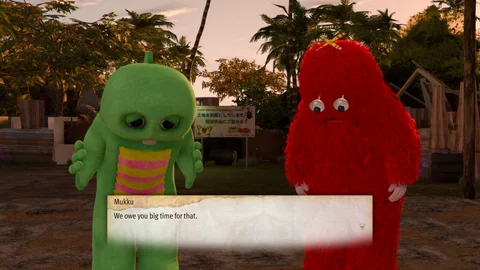
The whole setup of Dondoko Island is extremely funny and the system itself is great as well. The Animal Crossing hook of wanting to do every bit you can each day, to slowly make your island better and better, works almost as well here. Crafting and placing buildings is surprisingly tight and fun. The overall experience could be its own game, as you can spend many many hours here. As part of Infinite Wealth, it offers great variety from the rest of the game.
RGG Studio also did a decent job connecting the island to the game’s overall progression. After achieving certain goals, your island levels up and you get a bunch of money. Especially in the early- to mid-game, this is a massive boost and helps finance your Honolulu shenanigans. However, the further you get into the game the more money you get from just fighting fools, which makes the Dondoko grind kinda superfluous. It also feels more and more jarring to go back to the silly island resort, the more steam the main story picks up.
I wish this mechanic would have been introduced earlier, to give me more time to spend with it before things got really serious in the main story of the game. It is a lot of fun, but kind of clashes with other elements of the game and feels slightly undercooked in how it is implemented into the overall experience.
Verdict
But that’s kind of the thing with Infinite Wealth. As the title might imply, there is a lot to do here. And not everything connects together perfectly. But it’s actually impressive how much of it does. The flow of the game is tremendous, as is the immersion of the places you are in.
I just did not want to stop playing it, and I still don’t. No part of the game is half-baked or unsatisfying, no matter how jarring some of the tonal and systemic conflicts are. The world is brilliantly designed and the constant barrage of new, fun, exciting content is so engaging and just a ton of fun. There is a ton to do in this game, I barely scratched the surface of it in this review. And it's all fun to engage with and well-made across the board.
And then there’s the story. As a long-time Yakuza/Like a Dragon fan, who is used to the series tearing at my heart strings, I had an incredibly emotional time playing this game. Ichiban’s side of the story plays out brilliantly and will keep you on your toes the whole time. But Kiryu’s story is where the heart of the game is for me. Almost every cutscene with him moved me and many scenes revolving around his part brought me close to tears.
RGG Studio have done a wonderful job in putting these two heroes together and creating a beautiful, hilarious, moving, unforgettable adventure that is the perfect antidote to winter and which will surely be one of my favorite gaming experiences of 2024.


